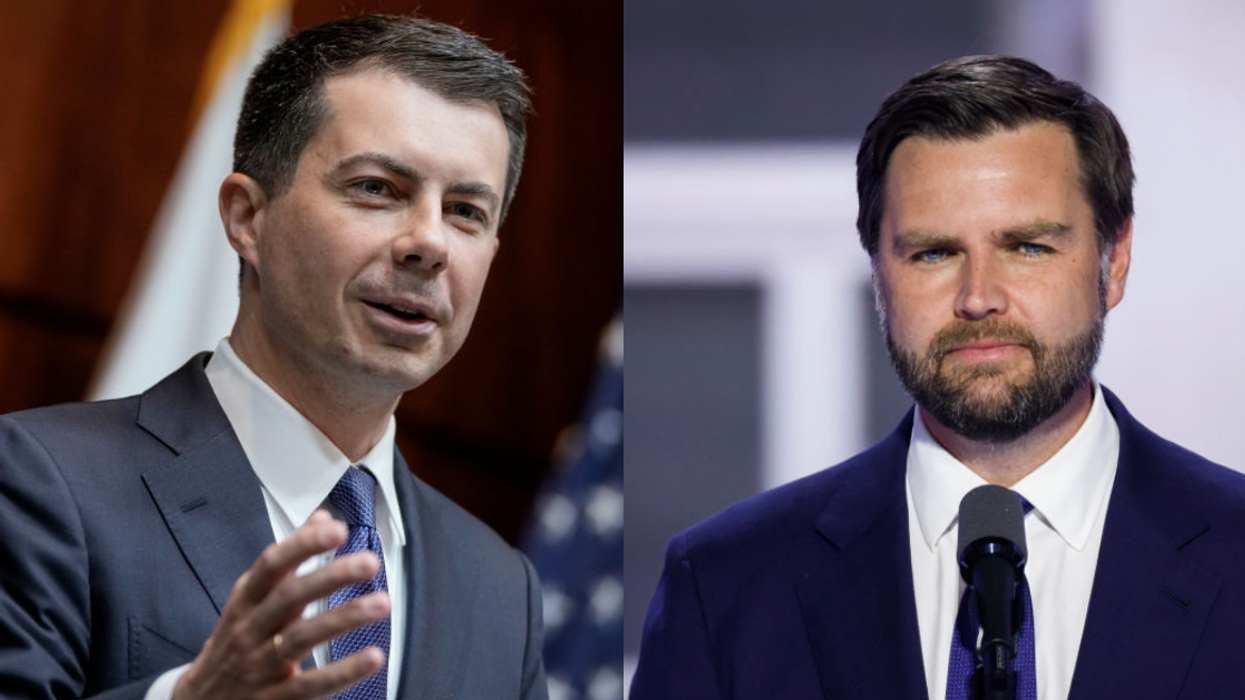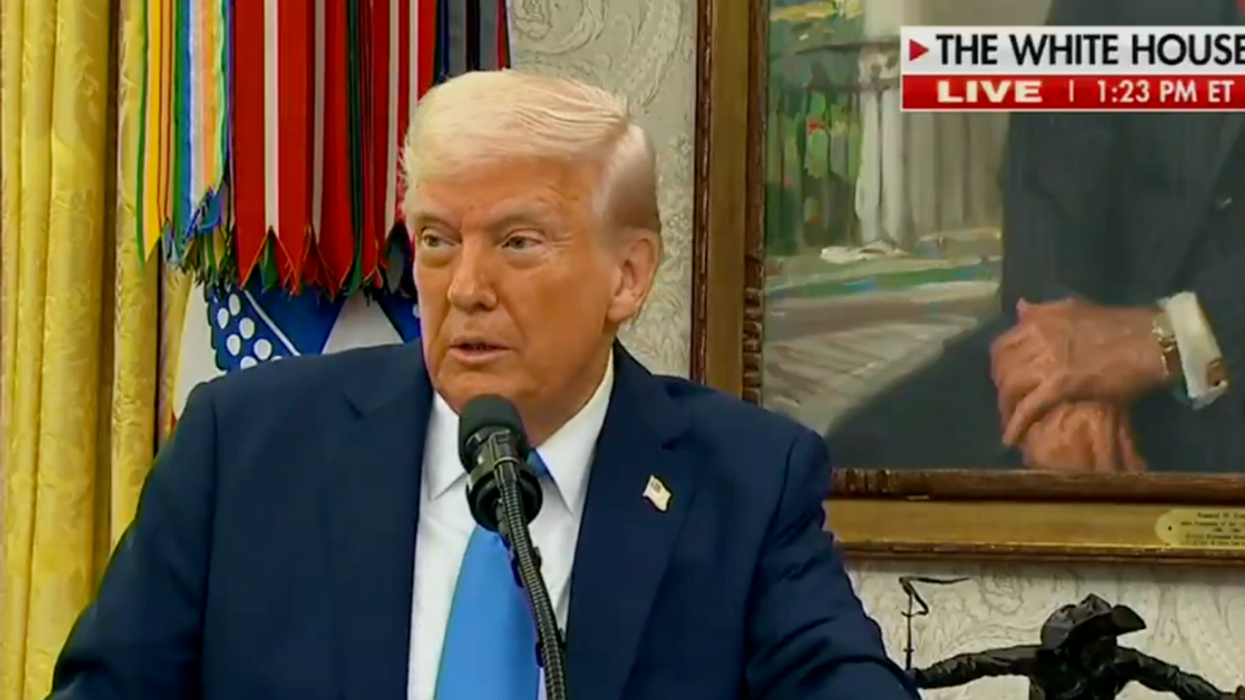After Vice President J.D. Vance asserted that it's "illegal" for judges to "control" President Donald Trump's "power," former Transportation Secretary Pete Buttigieg fired back with a blunt reality check.
On Sunday, Vance declared that “judges aren’t allowed to control the executive’s legitimate power,” issuing a pointed warning to the federal judiciary as court rulings continue to obstruct elements of Trump’s agenda.
Vance's statement follows a series of judicial orders that have, for now, blocked several key Trump administration actions. These include ending birthright citizenship, granting associates of Elon Musk’s DOGE initiative access to a sensitive Treasury Department system, transferring transgender female inmates to male prisons, and placing thousands of U.S. Agency for International Development (USAID) employees on leave.
Vance’s post did not cite any specific ruling.
He said:
"If a judge tried to tell a general how to conduct a military operation, that would be illegal. If a judge tried to command the attorney general in how to use her discretion as a prosecutor, that's also illegal. Judges aren't allowed to control the executive's legitimate power."
You can see what he wrote below.
Not long afterward, Buttigieg responded with a short and sweet reminder:
"In America, decisions about what is legal and illegal are made by courts of law. Not by the Vice President."
You can see his post below.
Many echoed his statements and criticized Vance.
Vance's post followed mounting backlash from Trump allies over a Saturday ruling that blocked Trump political appointees and associates of Musk from gaining further access to the Treasury Department’s payments system.
Trump slammed the decision as judicial overreach, calling it a “disgrace.” However, he signaled that the legal battle was far from over, suggesting the case “had a long way to go” as potential appeals loomed.
Some observers speculate that the Trump administration is intentionally creating test cases designed to reach the Supreme Court, where the Republican-appointed supermajority could further expand presidential power by striking down key statutes as unconstitutional.
However, the increasing number of courtroom battles has sparked a more alarming question of whether Trump chooses to ignore rulings he opposes rather than appeal them. Should he do so, his actions could, critics say, plunge the nation into a full-blown constitutional crisis.














 @FrankC164/X
@FrankC164/X
 AMC
AMC
